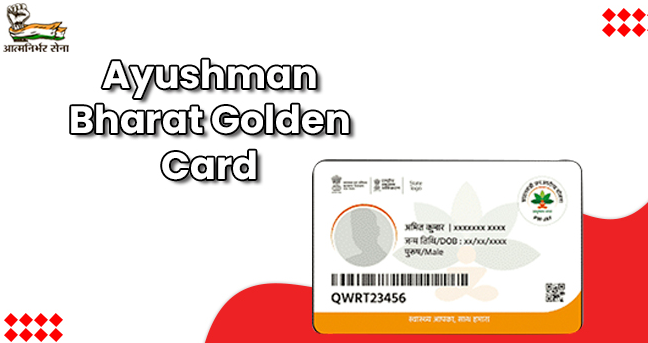The private hospitals and nursing homes in India have expressed several concerns about the Ayushman Bharat insurance scheme, particularly the GOLD card component despite its aim to help patients with low affordability. Ayushman Bharat, an ambitious health scheme launched by the Government of India, aims to provide affordable healthcare services to millions. The Gold Card initiative, part of this scheme, offers cashless treatment at empanelled hospitals. While these initiatives have made significant strides, they can be further enhanced to become a game-changer, particularly for Low- and Middle-Income Countries (LMICs). The following modifications could bolster their effectiveness:
Enhanced Digital Infrastructure
- Robust IT Systems: Developing a robust, scalable IT infrastructure is crucial. This includes reliable internet connectivity, cloud storage, and secure databases. Such systems ensure that patient records are easily accessible, reducing delays in treatment and improving the quality of care.
- Interoperability: Ensuring that digital health records and systems are interoperable is essential. Different healthcare providers and institutions should be able to share and access patient data seamlessly. This interoperability enhances continuity of care, especially in rural and remote areas.
Mobile Health Solutions
- Mobile Health (mHealth) Applications: Develop mHealth apps tailored for various stakeholders – patients, healthcare providers, and administrators. For patients, these apps can provide information on health schemes, hospital locations, and appointment scheduling. For healthcare providers, they can offer patient management tools, telemedicine capabilities, and access to medical records.
- SMS and Voice-based Services: For regions with low smartphone penetration, SMS and voice-based services can be an effective alternative. These services can be used for appointment reminders, health tips, and information dissemination about health schemes.
Telemedicine Expansion
- Teleconsultation Services: Expand teleconsultation services to ensure that even the most remote populations have access to medical advice. This can be facilitated through local health centers equipped with necessary digital tools to connect patients with specialists.
- Virtual Health Camps: Organize virtual health camps in rural and underserved areas. These camps can provide diagnostic services, health check-ups, and consultations, reducing the need for travel and associated costs.
Strengthening Primary Healthcare
- Digital Training for Healthcare Workers: Provide comprehensive digital training programs for healthcare workers in primary health centers. This training should cover the use of digital health tools, telemedicine platforms, and electronic health records.
- E-clinics: Set up e-clinics in rural areas equipped with digital diagnostic tools and telemedicine facilities. These clinics can act as a bridge between primary health centers and higher-level hospitals, ensuring timely and appropriate care.
Financial and Administrative Reforms
- Streamlined Claims Processing: Implement automated systems for processing insurance claims to reduce administrative burden and delays. Real-time processing and settlement of claims can enhance the efficiency of the scheme.
- Transparent and Accountable Systems: Use blockchain technology to create transparent and tamper-proof records of transactions and claims. This can reduce fraud and ensure that funds are utilized efficiently.
Health Literacy and Community Engagement
- Health Literacy Campaigns: Conduct large-scale health literacy campaigns to educate the population about the Ayushman Bharat scheme, the benefits of the Gold Card, and the importance of digital health tools. Use local languages and culturally relevant materials to ensure wide reach and understanding.
- Community Health Workers: Leverage community health workers to disseminate information, assist in digital health adoption, and provide on-ground support. These workers can act as a vital link between the community and healthcare providers.
Public-Private Partnerships
- Collaborations with Tech Firms: Partner with technology companies to develop and maintain digital health platforms. These collaborations can bring in expertise, innovation, and efficiency, driving the digital transformation of health services.
- Insurance Sector Engagement: Engage with private insurance companies to expand the coverage and sustainability of health insurance schemes. Public-private partnerships can help in designing affordable insurance products tailored to the needs of LMIC populations.
Policy and Regulatory Frameworks
- Data Privacy and Security Laws: Develop and enforce stringent data privacy and security regulations to protect patient information. Ensuring confidentiality and security is critical for gaining public trust in digital health systems.
- Incentives for Digital Health Adoption: Introduce incentives for healthcare providers to adopt digital health tools. This could include subsidies, tax benefits, or performance-based incentives, encouraging wider adoption and integration of digital health solutions.
Research and Innovation
- Health Data Analytics: Utilize health data analytics to identify trends, improve health outcomes, and optimize resource allocation. Data-driven decision-making can enhance the efficiency and effectiveness of healthcare delivery.
- Innovation Hubs: Establish innovation hubs focused on developing low-cost, high-impact digital health solutions. These hubs can foster collaboration between researchers, technologists, and healthcare providers, driving innovation in the health sector.
Monitoring and Evaluation
- Continuous Monitoring: Implement continuous monitoring and evaluation frameworks to assess the impact of digital health interventions. Regular feedback loops can help in identifying gaps and making necessary adjustments.
- Impact Assessment Studies: Conduct impact assessment studies to evaluate the effectiveness of the Ayushman Bharat and Gold Card initiatives. These studies can provide valuable insights and guide future policy decisions.
Redress Concerns of Private Hospitals
The private hospitals and nursing homes in India have expressed several concerns about the Ayushman Bharat insurance scheme, particularly the GOLD card component, despite its aim to help patients with low affordability.
Here are some of the main reasons for their dissatisfaction:
- Low Reimbursement Rates: The reimbursement rates under the Ayushman Bharat scheme are often lower than the actual cost of treatments. Private hospitals argue that the rates set by the government do not cover the expenses incurred for high-quality medical care, advanced technology, and skilled professionals.
- Delayed Payments: Private hospitals have reported delays in receiving payments from the government for the services provided under the scheme. This can lead to cash flow issues, affecting their operations and ability to provide timely care.
- Administrative Burden: The scheme involves a significant amount of paperwork and administrative processes, which can be cumbersome for private healthcare providers. This increases their operational costs and diverts resources from patient care to administrative tasks.
- Quality vs. Cost: There is a concern that the focus on cost-cutting might compromise the quality of care. Private hospitals often aim to maintain high standards of healthcare, which may be difficult to achieve with the lower tariffs and cost constraints imposed by the scheme.
- Selection Bias: Some private hospitals feel that the scheme does not adequately compensate for complex and high-risk procedures. As a result, they might be reluctant to treat patients with severe or complicated conditions under the scheme.
- Infrastructure and Resource Constraints: Smaller private hospitals and nursing homes may lack the infrastructure to manage the increased patient load and administrative requirements brought about by the scheme. This can lead to overcrowding and resource strain.
- Limited Coverage of Treatments: The scheme may not cover all types of treatments or specialized care, which limits the scope of services that private hospitals can offer to patients under this scheme.
- Financial Viability: For many private hospitals, especially those in urban areas with high operational costs, participating in the scheme may not be financially viable in the long term due to the low tariffs and delayed reimbursements.
- Sustainability Concerns: Private healthcare providers worry about the sustainability of the scheme given the financial constraints and increasing patient numbers. They fear that continued participation might not be economically sustainable without revisions in reimbursement rates and payment processes.
Overall, while the Ayushman Bharat scheme aims to make healthcare more accessible and affordable for the economically weaker sections of society, private hospitals and nursing homes have raised valid concerns regarding the financial and operational impact on their services. Addressing these issues is crucial to ensure the scheme’s success and the active participation of private healthcare providers.
The Ayushman Bharat and Gold Card initiatives have the potential to revolutionize healthcare delivery in LMICs. By enhancing digital infrastructure, expanding telemedicine, strengthening primary healthcare, and fostering public-private partnerships, these initiatives can become true game-changers. With the right modifications, they can ensure equitable access to quality healthcare for millions, driving health outcomes and improving lives in LMICs.
(The author is a Practicing surgeon at Mubarak Hospital, and Healthcare policy analyst, Certified professional in Healthcare Quality, National and international expert on Healthcare policy planning and reforms can be reached at [email protected])







